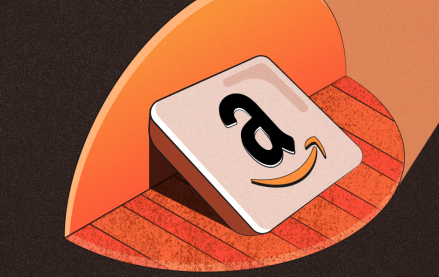Hear from execs at The New York Times, Thomson Reuters, Trusted Media Brands and many others

Back when everybody thought Donald Trump was going to lose the 2016 presidential election – remember that? – publishers were wondering what they would do when they wouldn’t have an orange crush of traffic padding their monthly audience totals anymore.
But then he won, and now numerous publishers have gone all in, launching Trump-focused products to capitalize on the intrigue of a Trump presidency.
Less than two weeks after the election had concluded, Mic had launched “Navigating Trump’s America,” a newsletter written by journalist Will Drabold. One day after Trump’s first press conference, Inside, a newsletter network startup founded by Jason Calacanis, launched “Inside Trump,” a kind of synthesis and distillation of wide reporting about Trump. The week of his inauguration, New York public radio station WNYC, in collaboration with Minnesota Public Radio and The Economist, will launch “Indivisible,” a national call-in show dedicated to charting the first 100 days of Trump’s presidency.
This impulse to launch a media brand focused on Trump’s agenda is not confined to the left: Two former Breitbart staffers intend to form a venture called Big League Politics.
The motivations differ for each product launched. For Inside, the decision to cover “the single most covered topic in media” deviates from its core competency, which is newsletters focusing on highly targeted topics, like drones or artificial intelligence. Work began on “Indivisible” days after New York Public Radio President Laura Walker lambasted the media for “talking to ourselves”; the show’s mission is to broaden dialogue around what Trump and his administration are doing.
“Even in the campaign, we were thinking about, how do we make sure that we really understand the breadth of the electorate, the breadth of America’s thinking?” said Jim Schachter, WNYC’s vp of news. “In some ways, this is a continuation of that coverage.”
Of course, publishers were throwing their arms around the opportunity Trump presented them back when he was still a candidate. Trumpcast, a podcast hosted by Slate Group Chairman Jacob Weisberg, quickly became one of the most downloaded podcasts in Slate’s history, and now averages more than 1 million downloads per episode; Esquire and Hearst digitally rebooted Spy Magazine, the publication that gave the sobriquet “short-fingered vulgarian” to the world. By the time fall 2016 rolled around, Trump coverage was so wide-ranging and pervasive that some papers had resorted to focusing their Trump coverage on his college career.
While still early, there is some interest from advertisers. Cory Haik, Mic’s chief strategy officer, said “Navigating Trump’s America” had drawn interest and that sponsorships would begin appearing “in the coming months”; she did not address a question about how many people receive it, saying only that the newsletter’s open rate is north of 40 percent.
These publishers seem committed to these projects over the long term. Austin Smith, Inside’s general manager, called the Trump newsletter “important work,” noting that four staffers work on it every week. WNYC has already begun work on a kind of sequel to “Indivisible” that will involve more in-depth reporting, due out later this spring.
“We don’t know what issues will be pertinent,” Schachter said. “But our premise is the one thing we can do is listen to one another.”
More in Media

VTubers are catching marketers’ eyes in 2025
Instead of revealing their real-life faces to the camera, VTubers use motion-capture or hand-tracking technology to map their movements and facial expressions to an animated avatar. That way, they can keep their identities private while still building distinct, marketable personas that fans connect with.

Google AI Overviews linked to 25% drop in publisher referral traffic, new data shows
Organic search referral traffic from Google is declining broadly, with the majority of DCN member sites – spanning both news and entertainment – experiencing traffic losses from Google search between 1% and 25%.

Media Briefing: Amazon’s off-site ad push is becoming publishers’ post-cookie playbook
Amazon is fast becoming a partner du jour for publishers: a kind of post-cookie data wingman that’s helping them monetize the approximate 70 percent of the open web that’s now unaddressable.





